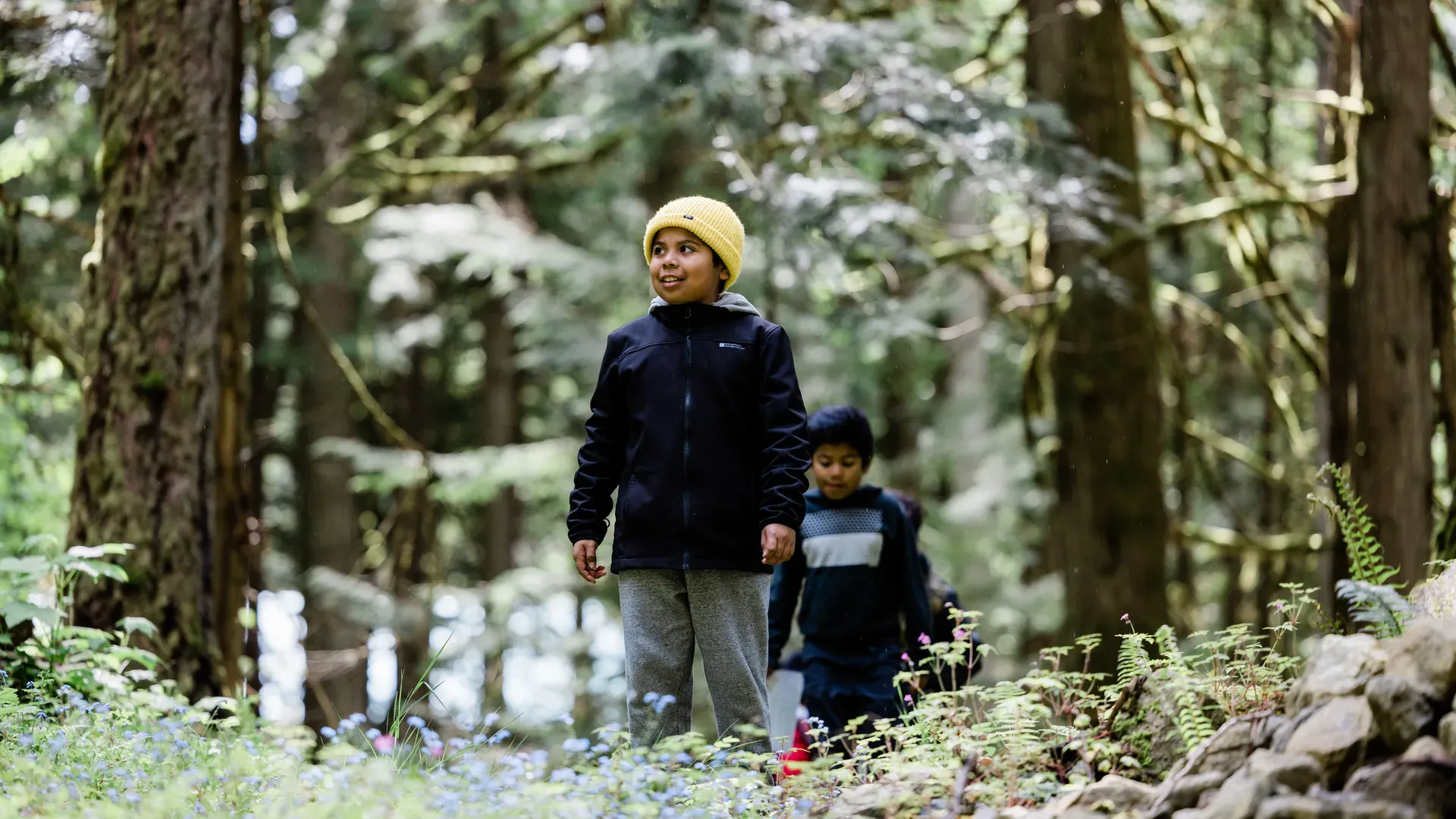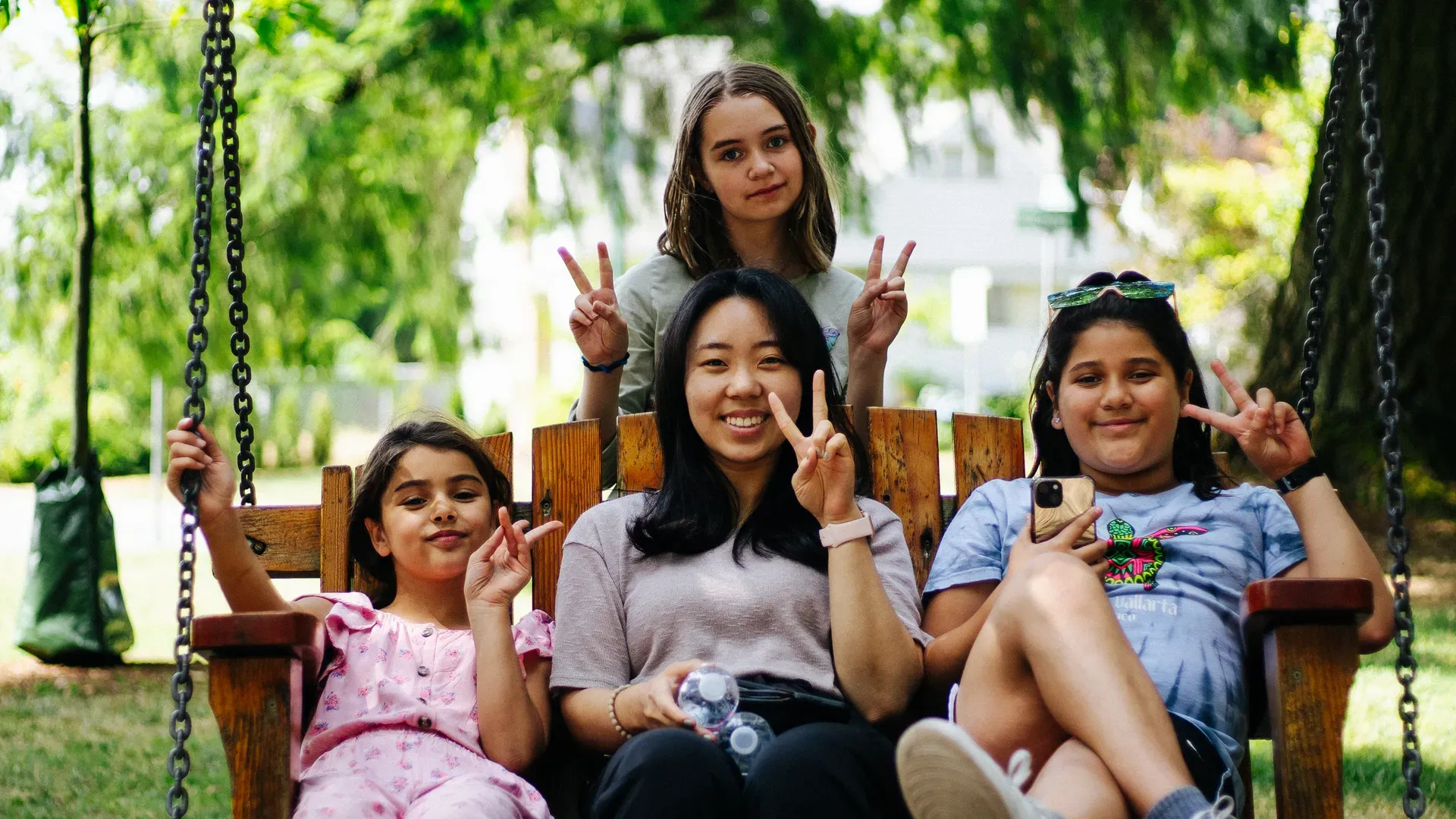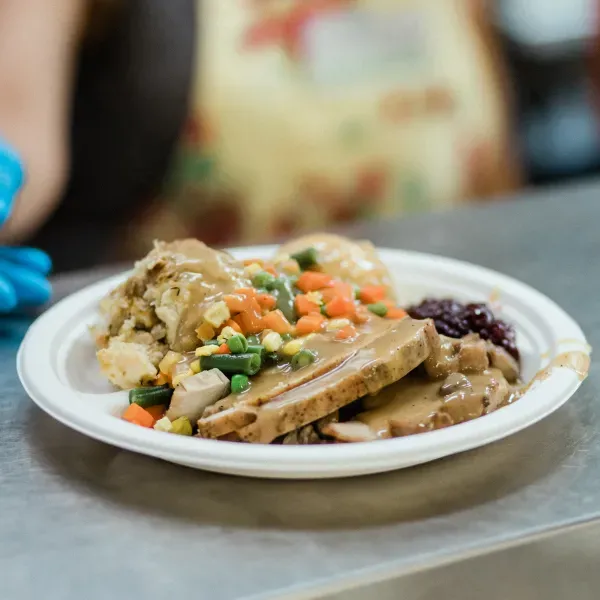You’re standing in the grocery aisle. Your child is asking you for a box of cereal, and you’re doing the math in your head. No matter how you work the problem, it doesn’t go away: you can’t afford food and your electrical bill this month.
This scenario is all too common for many Canadian families. As recently as 2021, Stats Canada shared that 6.9 million people were living in households that experienced food insecurity. It isn’t just a few people struggling to make ends meet — it’s entire communities. Along with food insecurity come the challenges of affording seasonal clothing, heating bills, and special events like school field trips or extracurricular activities.
Whether you’re facing financial hardship yourself, or helping your children understand why their classmates don’t always eat breakfast before coming to school, we know that conversations about poverty can be important — and challenging — to navigate. Kids have generous hearts, and are full of questions when it comes to inequality.
To help, we connected with two parents on staff at Union Gospel Mission to get their take on how to talk to your kids about poverty. Earned through lived experience and on-the-job learning, their tips aim to support you as you equip your kids to better understand their own circumstances while caring for a confusing world.
1. Questions are okay

In her role as a Community Outreach Worker on staff with the Eastsiders After School Program, Ellen interacts with kids all day long. One thing she knows for certain is that where there are kids, there will be questions. While her own children are now adults, she recalls their early concerns when they noticed differences with kids at school.
“I remember them talking about how sometimes kids’ clothes were dirty,” she says. “I would say, ‘Well, that might be because they don't have access to a washing machine. Or maybe their mom is working hard and she doesn't have time to do their laundry.’”
Answering questions with honesty and compassion can help children feel safe as they explore unfamiliar topics. For dad-of-two David, working as a Creative Producer at UGM has guaranteed his house is full of questions. “The girls have been very curious, since a young age, as to what I do at work,” he says. His daughters, who are seven and nine, are interested in his work filming, editing, and sharing community member stories.
When his girls notice someone who might be struggling with poverty, David tries to meet their questions with his own questions. “I might take them aside and ask, ‘What did you notice? How do you think that person feels? How can we try to put ourselves in their shoes?’ I never want to discourage questions. At the same time, as parents, we want to guide them in how they express what they’re feeling in the moment. It’s okay to say ‘Let’s talk about this later’ and then follow through on that.”
2. ‘Poverty is not a personal failure’
Without frightening our kids, it’s essential that we help them understand that poverty can happen to anyone — and it’s not because people did anything bad. Being poor isn’t a punishment or a sign of a person’s value.
“When my marriage ended, which is what brought me into poverty, my kids were eight, 10, and 12,” says Ellen. “We weren’t poor, and then we were poor. There’s a big difference between saying ‘No, we don’t need that’ and not being able to afford groceries. It was really, really difficult.”
As his girls gain a wider understanding of the world, David works to ground hard realities in human connection. “I try to share the stories of people I meet, because my girls [like so many children] are very drawn to stories,” he says. “I always emphasize that poverty is not a personal failure. There are so many factors: lack of jobs that pay adequate wages, lack of education, the extremely high cost of living, mental illness, disability, and addiction can all contribute to someone living in poverty. [It’s important] never to assume that someone has done something wrong to be in this situation.”
3. When appropriate, talk about systems
As your kids gain the ability to think abstractly, there’s opportunity to expand the conversation about poverty from “not everybody has enough” to “sometimes the way we’ve built our society makes it harder for people to get by.”
“It's very hard to get out of poverty,” says Ellen, who experienced the challenge of attempting to support her family as a single mother. She notes that people are often treated differently based on what they look like or have access to: it’s hard to apply for jobs if you’ve been out of work for a while. It’s difficult to look put together at an interview if you don’t have access to a shower or clean clothes. It’s hard to focus at school when you’re hungry. Government policies, substandard living conditions, and discrimination all have an effect on how people in poverty experience the world.
While existing external systems can make it hard for people to rise out of poverty, for some, it’s internal injuries that present the most challenge. People who have experienced trauma in their lives — especially in childhood — are more likely to experience poverty as an adult.
“When the girls were little, we kept things simple, sharing that maybe someone doesn't have enough money to buy food or doesn't have a home,” says David. “Now, with my oldest, I can get into a bit more of the conversation around the additional hurdles of mental illness and addiction that can lead people into poverty. I think the challenge is being age-specific, and gauging when your kids become more comfortable with grey areas, with things that aren’t black and white.”
4. Kids can help
It’s true that people experiencing poverty are walking an unjust and difficult road. But it’s also true that amazing things can happen when we care for each other — and nobody has more capacity for caring than kids.
“I think for us, as a Christian family, one of the things we really tried to demonstrate to our kids was sharing what we had,” says Ellen. “They grew up knowing that not everyone has everything — and that when we have extra, we can share.”
Part of inviting kids into sharing is helping them listen to others and notice the needs around them. “My kids were involved in a skating program through their elementary school,” says Ellen. “One day, my daughter was tying one little kid’s laces, and learned the little girl hadn’t had breakfast because her mother had no groceries in the house. When I returned to pick up the kids up from school, I brought some bags of groceries with me. I said ‘We just need to help this little girl carry these bags home.’ I think one of the best things we can do is just teach our kids to be empathetic.”
While practical and financial care is essential for helping people overcome poverty, kids’ responses to need don’t have to be monetary. “I try to emphasize the role that everyone can play,” says David of bringing his kids into caring for others. “I think my girls sometimes feel discouraged, like, ‘Well, what can we do?’ And so I’ll say, ‘How about you make a card and address it to someone who’s experiencing poverty and I'll find some at work to give it to.’ Showing them that even in small ways, they can make a difference and bring kindness into other's lives.”
5. Friendship is free

One of the things people experiencing poverty often face is isolation. Struggling to make ends meet is lonely, and the challenges of connecting with other people become insurmountable when people are working multiple jobs, in the process of navigating addiction, or facing mental health hurdles. Both David and Ellen note that treating others the way we’d like to be treated — in other words, extending welcome — is one of the kindest things we can teach our children.
“We definitely encourage inclusion in our family, encouraging the girls to look for kids at school who might feel left out and try to include them,” says David. “Recently, my oldest daughter met one of the children who lives at the Women & Families Centre. The other girl said ‘Hey, do you want to be friends?’ and my daughter replied ‘I’d love to be your friend. Tell me about yourself!’ The other child shared part of her story, how she’d been living in foster homes and how that was hard, and how glad she is to be reunited with her mom. Their lives have been very different, but they found so many similarities. My daughter was so excited to have a new friend.”
“I'm always aware of making real, genuine contact with kids,” says Ellen of building friendships. “I've learned a lot in this past year with the Eastsiders: they want real authentic connection, and they want stability in that connection. One of the boys I work with, he's 12, and one day we were coming home from a one-on-one. He said, ‘Ellen, I want you to stop. Look at that tree.’ And then he recited a poem someone had told him: If you feel like you’re losing everything, remember trees lose their leaves every year and they still stand tall and wait for better days to come. He was so intent on me hearing that — I think he almost said it to encourage me about him, you know? His parents had taught him empathy, that hard times do come to people. But that he’s not responsible for how the world looks at him just because he’s poor.”
You never know when a kind word or listening ear will make the difference in someone’s day. And our kids are capable of being wonderful, welcoming people in the world.
Reiterating hope
As kids try out their compassion, how can we as parents and caregivers support them as they encounter and combat poverty? For Ellen, she sees our role as being rooted in advocacy. “As people that care about these issues, we have to be a collective that makes our voice known,” she says. “That’s a big motivator for me: if there’s enough of us voting and speaking out, that will make a change.”
Like his daughters, David is very motivated by stories. “I’m always bringing it back to Jesus,” he says. “Jesus loved people who weren't seen as important in society, or who struggled, so how can we emulate that? And then how can we also hold onto the hope that Jesus is present in the midst of hard circumstances, that someday he's going to wipe away all these tears? It's not a hopeless situation, even though sometimes it can seem that way. We can have hope that Jesus is real and is changing people’s lives and that we can be a small part of that. There's always hope.”
To learn more about how people can find themselves in need — and experience new life in community — read Luis’s story.


